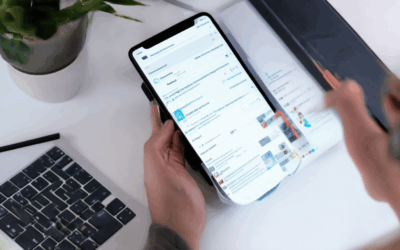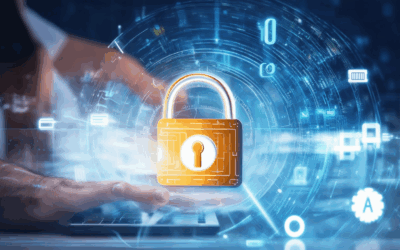In today’s digital age, our personal information is more vulnerable than ever before. With the rise of technology and the internet, we’re constantly sharing sensitive details about ourselves online, whether it’s through social media, online transactions, or even just browsing our favorite websites. However, this increased connectivity comes with a price – our personal information is now more susceptible to being compromised by hackers, identity thieves, and other malicious actors.

Protecting Your Personal Information
When it comes to protecting your personal information, there are several steps you can take to safeguard your identity and prevent unauthorized access.
- Be Cautious with Personal Data: Only share your personal information with trusted individuals or organizations, and make sure you understand how it will be used.
- Verify Identity: Before sharing sensitive information, verify the identity of the person or organization requesting it to ensure they are legitimate.
- Use Strong Passwords: Create unique and complex passwords for all accounts, and consider using a password manager to keep track of them.
- Monitor Accounts: Regularly check your bank and credit card statements for suspicious activity, and report any discrepancies to the relevant authorities.
- Use Two-Factor Authentication: Enable two-factor authentication whenever possible to add an extra layer of security to your accounts.
- Keep Software Up-to-Date: Regularly update your operating system, browser, and other software to ensure you have the latest security patches and features.
- Use a VPN: Consider using a virtual private network (VPN) when accessing public Wi-Fi networks to encrypt your internet traffic and protect your data.
- Shred Sensitive Documents: Dispose of sensitive documents, such as financial records and identification documents, securely by shredding them.
- Freeze Credit Reports: Place a freeze on your credit reports to prevent identity thieves from opening new accounts in your name.
- Report Suspicious Activity: Immediately report any suspicious activity or potential identity theft to the relevant authorities, such as the Federal Trade Commission (FTC).
By taking these steps, you can significantly reduce the risk of your personal information being compromised and protect your identity from potential threats.
Additional Resources:
- Federal Trade Commission (FTC)
- Consumer Financial Protection Bureau (CFPB)
- Identity Theft Resource Center
Staying Safe Online:
Remember to always be cautious when sharing personal information online, and take advantage of the resources available to you to stay safe and protected.
Is Google Protect Your Information Legit?
At Blind Browser, I’m committed to helping you stay safe online, which is why I want to give you the lowdown on Google’s Protect Your Information feature.
- What is Google Protect Your Information?
- Google Protect Your Information is a built-in security feature designed to safeguard your personal data across various Google services, including Search, Maps, and YouTube.
How Does it Work?
- When you sign in to your Google account, Protect Your Information kicks in, scanning your activity for potential threats and vulnerabilities.
- If it detects something suspicious, it’ll alert you and take steps to block malicious activity before it reaches you.
- This includes blocking phishing attempts, malware, and other types of cyber threats that could compromise your account or steal sensitive info.
Key Benefits:
- Data Protection: With Protect Your Information, your personal data remains private and secure, even when you’re using public Wi-Fi or accessing sensitive information online.
- Advanced Threat Detection: Our cutting-edge security technology identifies and blocks sophisticated threats that might evade traditional security measures.
- Easy-to-Use Settings: Managing your data protection preferences has never been easier, thanks to our intuitive settings menu.
Competitors to Consider:
- Mozilla Firefox offers robust privacy features, including tracking protection and encryption.
- Apple prioritizes user privacy through its Safari browser and other products, incorporating features like Intelligent Tracking Prevention.
Why Choose Google Protect Your Information?
As a Blind Browser user, you can trust that Google Protect Your Information has got your back. With its advanced threat detection, easy-to-use settings, and commitment to data protection, it’s an essential tool for staying safe online.
By leveraging the power of Google’s Protect Your Information, you can enjoy peace of mind knowing your personal data is secure, even in today’s increasingly complex online landscape.
Stay safe, stay informed – with Google Protect Your Information, you’ve got the upper hand against online threats.

Protecting Personal and Confidential Information
To safeguard my personal and confidential information, I take several steps.
-
Be Cautious with Online Transactions
-
Verify Website Authenticity
-
Use Strong Passwords
-
Enable Two-Factor Authentication
-
Monitor Credit Reports
-
Check for Errors
-
Monitor Credit Scores
-
Secure Devices and Networks
-
Keep Software Up-to-Date
-
Use Antivirus Software
-
Use a VPN
-
Shred Sensitive Documents
-
Use a Shredder
-
Dispose of Electronic Devices Properly
I always verify the authenticity of websites and ensure they have a valid HTTPS connection before entering sensitive information.
I check the website’s URL and look for signs of legitimacy, such as a padlock icon in the address bar or a trusted seal from a reputable organization.
I create unique and complex passwords for each account, avoiding easily guessable information like names, birthdays, or common words.
I enable two-factor authentication whenever possible, adding an extra layer of security to prevent unauthorized access to my accounts.
I regularly review my credit reports to detect any suspicious activity or errors.
I carefully examine my credit report for any inaccuracies or discrepancies, disputing any issues I find.
I keep track of my credit score and work to maintain a healthy credit history.
I take measures to protect my devices and networks from cyber threats.
I regularly update my operating system, browser, and other software to ensure I have the latest security patches.
I install and regularly update antivirus software to detect and remove malware.
I use a virtual private network (VPN) to encrypt my internet traffic and protect my data when using public Wi-Fi networks.
I securely dispose of sensitive documents, such as financial records or identification documents.
I use a cross-cut shredder to destroy sensitive documents, making it difficult for others to reconstruct them.
I properly dispose of electronic devices, such as hard drives or smartphones, to prevent data breaches.

Protecting Your Personal Information
To safeguard my personal information, I take several steps.
- Create complex and unique passwords for all online accounts, avoiding easily guessable information such as names, birthdays, or common words.
- Shop securely online by using reputable payment services, such as PayPal or credit cards, which offer robust protection against unauthorized transactions.
- Regularly monitor my account statements and credit reports for suspicious activity, promptly reporting any discrepancies to the relevant authorities.
- Be cautious when sharing personal details online, limiting the amount of sensitive information shared on social media platforms and other public forums.
- Utilize two-factor authentication whenever possible, adding an extra layer of security to my online accounts and preventing unauthorized access.
- Keep my operating system, browser, and other software up-to-date, ensuring I have the latest security patches and features to protect against emerging threats.
- Employ a reputable antivirus program to scan my device regularly, detecting and removing malware that could compromise my personal information.
- Consider investing in a virtual private network (VPN) to encrypt my internet traffic, shielding my data from interception by malicious actors.
- Back up my important files and documents securely, using cloud storage services or external hard drives to prevent loss in case of a cyber attack or hardware failure.
- Stay informed about the latest cybersecurity threats and best practices, attending workshops, webinars, or online courses to enhance my knowledge and skills.
I understand that protecting my personal information requires ongoing effort and vigilance, but these measures significantly reduce the risk of identity theft and other cyber-related crimes.
Protect Your Information
I’m committed to protecting my personal information from hackers and scammers.
-
Understand Online Threats
Be aware of common online threats, such as phishing scams, malware, and identity theft.
- Phishing scams involve tricking individuals into revealing sensitive information through fake emails or messages.
- Malware can compromise your device’s security and steal your data.
- Identity theft occurs when someone uses your personal info without permission.
-
Implement Security Measures
Take proactive steps to safeguard your information:
- Use strong, unique passwords for all accounts.
- Enable two-factor authentication whenever possible.
- Keep software and operating systems up-to-date.
- Use reputable antivirus software and a firewall.
-
Monitor Accounts and Credit Reports
Regularly check your bank and credit card statements for suspicious activity.
- Set up account alerts for unusual transactions.
- Review your credit reports annually.
- Dispute any errors or unauthorized changes.
-
Stay Informed and Educated
Stay up-to-date on the latest online security trends and best practices:
- Follow reputable sources for cybersecurity news and advice.
- Participate in online communities and forums to learn from others.
- Attend workshops or webinars on online security and privacy.
By taking these steps, I can significantly reduce the risk of my personal information being compromised.
For more information on online security and privacy, visit Blind Browser.

Protecting Your Personal Information
As someone who values online security and anonymity, I understand the importance of safeguarding my personal information.
- Social Security numbers
- Credit card or financial information
- Other sensitive data
These three types of information are highly sought after by identity thieves and scammers, which is why it’s crucial to take extra precautions to protect them.
Why Protecting Your Personal Info Matters
Identity theft can have severe consequences, including financial loss, damage to your credit score, and even emotional distress.
- Monitor your bank and credit card statements regularly to catch any suspicious activity.
- Use strong, unique passwords for all accounts and consider enabling two-factor authentication.
- Be cautious when sharing personal info online, and only provide it to trusted sources.
Additional Tips for Safeguarding Your Data
In addition to protecting your social security number, credit card info, and other sensitive data, there are several other steps you can take to enhance your online security:
- Use a reputable antivirus software and keep it up-to-date.
- Regularly update your operating system and web browser.
- Use a VPN when accessing public Wi-Fi networks.
- Consider using a password manager to securely store your login credentials.
Staying Informed About Online Safety Trends
To stay ahead of potential threats, it’s essential to stay informed about the latest online safety trends and best practices.
Blind Browser offers valuable resources and insights on online security, including tips on secure browsing practices, privacy tools, and the latest in internet security.
By taking these proactive steps, you can significantly reduce the risk of identity theft and protect your personal information online.




